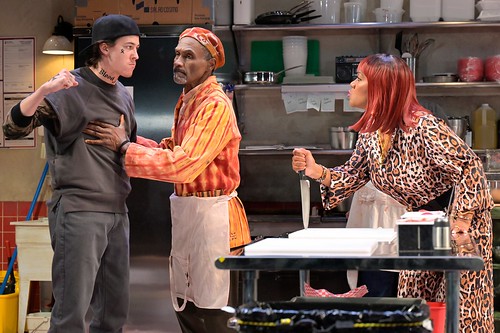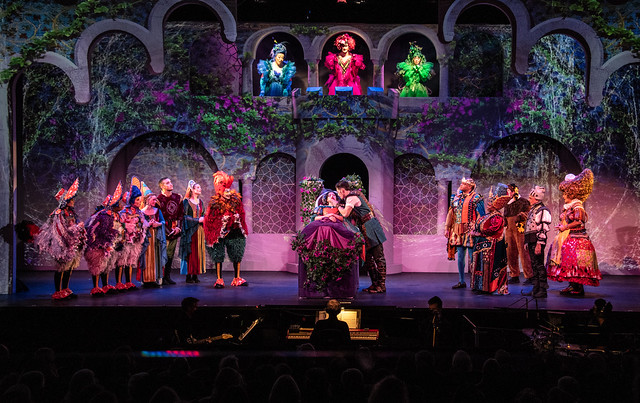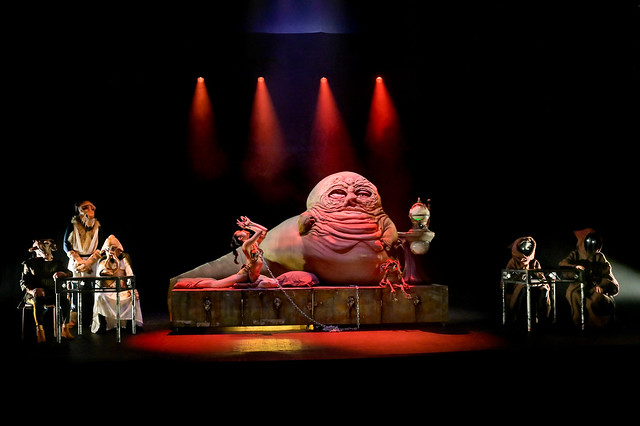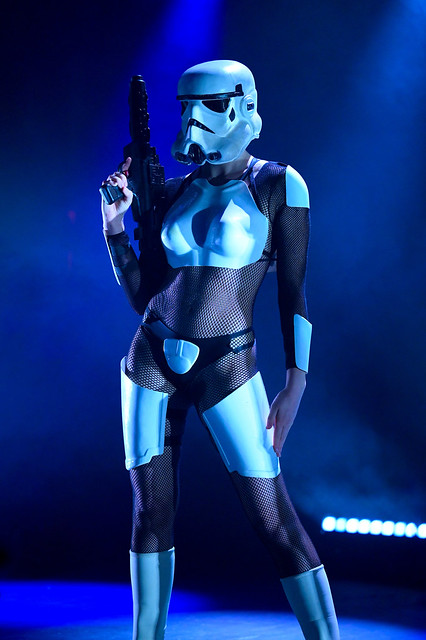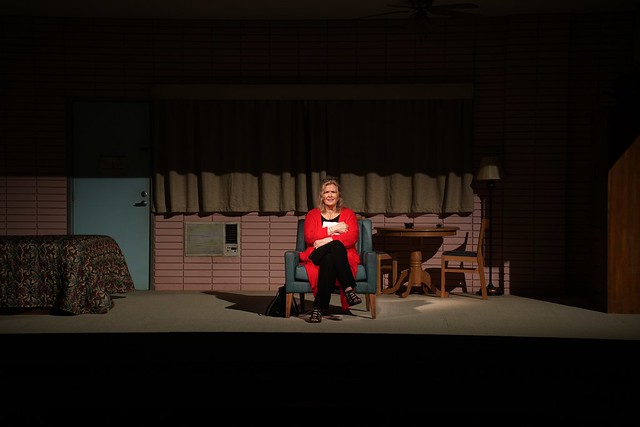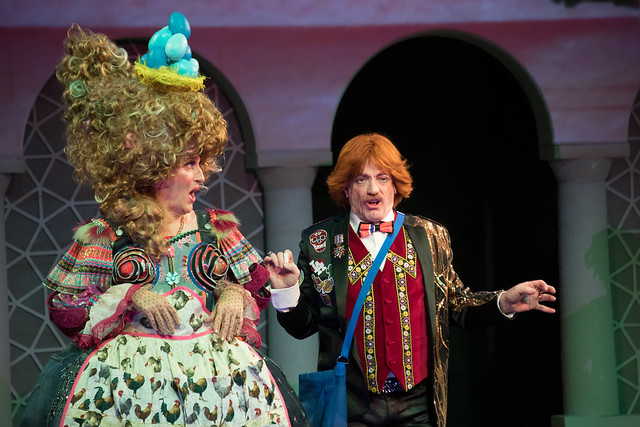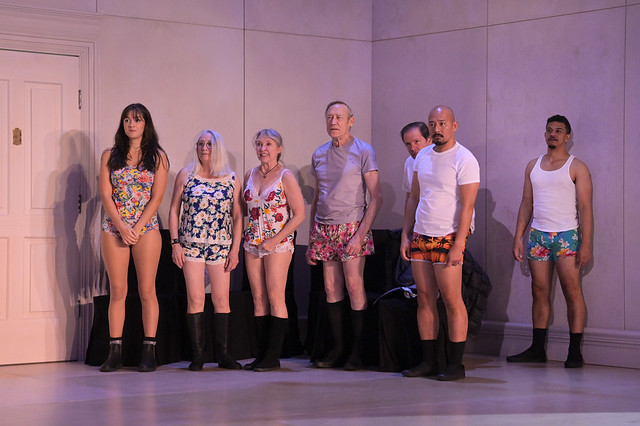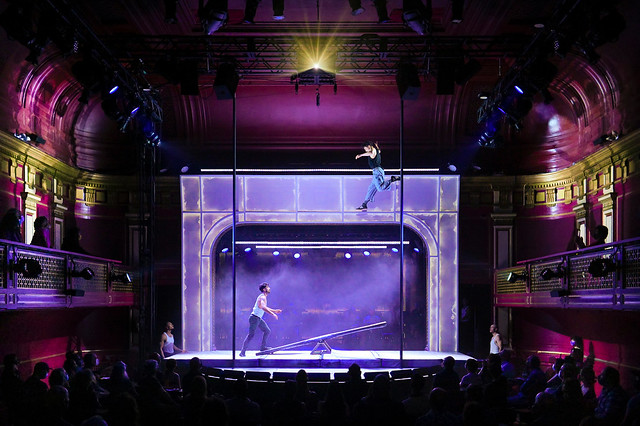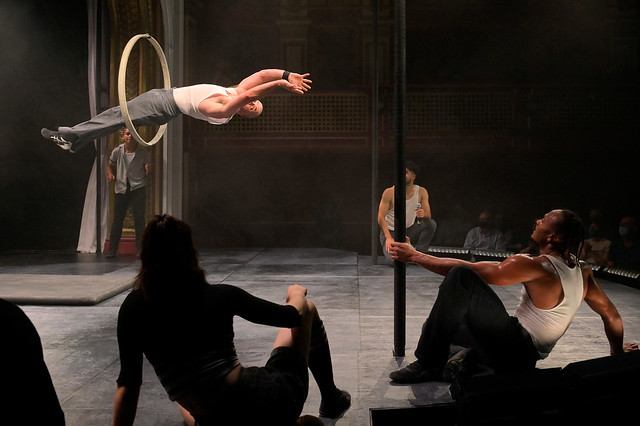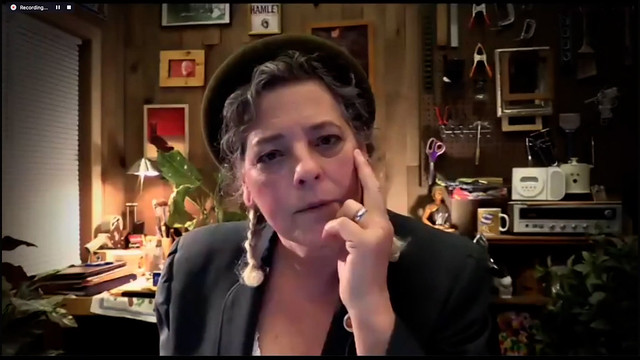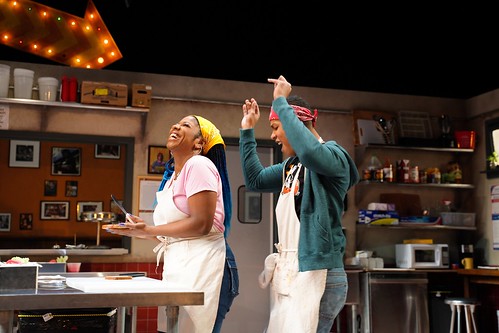
ABOVE: Cyndii Johnson is Letitia and Wesley Guimarães is Rafael in Lynn Nottage’s Tony Award-nominated play Clyde’s, at Berkeley Repertory Theatre. BELOW: (from left) Louis Reyes McWilliams is Jason, Harold Surratt is Montrellous and April Nixon is Clyde. Photos by Muriel Steinke/Berkeley Rep
It’s easy to see why Lynn Nottage’s Clyde’s is this country’s most produced play. Like other works in the Nottage canon, this one is about real things, hard things – violence, poverty, addiction, rehabilitation, homelessness and a system of so much inequity that too many don’t even have a chance. But Clyde’s is also a comedy. It’s heartfelt and hopeful, with laughs to leaven what might, in less skilled hands, become mawkish or sentimental.
Audiences and theater companies are understandably attracted to this show: it’s about 90 minutes with five diverse actors, one set (a working kitchen at a truck-stop diner) and a take on contemporary life that doesn’t ignore harsh realities but allows humor, connectivity and grace to warm a cold place.
The Bay Area premiere of Clyde’s comes in an engaging co-production from Berkeley Repertory Theatre, where the play opened Wednesday night in the Peet’s Theatre, and Boston’s Huntington Theatre Company. There are lots of laughs in director Taylor Reynolds’ production, but underneath the sitcom veneer – think “Alice” by way of “The Bear” and “Orange Is the New Black” – what really shines through are the relationships that become powerful enough to change the characters’ lives – even the bad ones.
The reputation of Clyde’s, a Pennsylvania roadside sandwich joint favored by truckers, is that the sandwiches and burgers are pretty tasty. What diners may not know is that owner Clyde (April Nixon) has, as she puts it, sold her soul to keep this place open. Her kitchen staff has always comprised formerly incarcerated people who have trouble finding gainful employment anywhere else. While Clyde could be seen as a savior of sorts, she’s really more of a bully, even physically abusing some of the crew (and they have the bruises to prove it). She doesn’t want to hear their woeful stories, and she definitely doesn’t want to taste their inventive new sandwiches. Her needs are simple: show up on time and do the work (and maybe don’t crumble under her rather ferocious management style).
The center of the kitchen crew is Montrellous (Harold Surratt), an older Black man who is the epitome of mindfulness and consideration. He doesn’t view sandwiches as food as much as democracy. He does things with care and intention and love. He tries to instill this sense of presence and purpose in his co-workers, Rafael (Wesley Guimarães), a Latino man who tried to rob a bank with a BB rifle, and Leticia (Cyndii Johnson), a Black mom who robbed a pharmacy to get meds for her special-needs child and then, in her words, got greedy grabbing a few things to sell on the side.
Both Rafael and Tish, as she’s known, are fully under Montrellous’ spell and are trying, in their ways, to be better and do better. Their productive kitchen trio is upended with the arrival of Jason (Louis Reyes McWilliams), a newly released white guy covered in racist gang tats – something that doesn’t exactly endear him to Tish. His presence ups the tension in the kitchen, but, in short order, he falls into the workaday rhythm and begins, like the others, to revere Montrellous and to take his work (and himself) seriously. The environs may be dingy (the set by Wilson Chin is perfection), but the work and the people occasionally operate at reverential, life-changing levels.
Two-time Pulitzer winner Nottage uses Clyde to keep things sharp, but she’s not afraid to introduce a burgeoning love story for Tish and Rafael, which could be sappy but is absolutely endearing (especially in the marvelous, warmhearted performances from Johnson and Guimarães). Nearly every time Clyde comes into the kitchen, she’s wearing a different wig and another expensive, flashy outfit (costumes by Karen Perry). Nixon’s performance could use more menace, but we get the idea. Clyde, who also has a prison stint in her past, is this purgatory’s resident demon, and to escape, her prisoners will have to rely on one another to find strength, motivation and the right moment.
What’s interesting is the way Nottage brings everyone in the play more clearly into focus as it moves along – everyone but Clyde. You actually begin to care about all the characters (but Clyde), and the notion that she is just an end to a more just means begins to sink in. Society has let down everyone here, but the alchemy of Clyde’s kitchen (and her penchant for meanness and humiliation) forges a crucible for change. For Montrellous, Tish, Rafael and Jason, sandwiches are a step toward self-actualization and Clyde is a devil they’ll leave in their past.
FOR MORE INFORMATION
Clyde’s by Lynn Nottage continues through Feb. 26 at Berkeley Repertory Theatre’s Peet’s Theatre, 2025 Addison St., Berkeley. Running time: 90+ minutes (no intermission). Tickets are $30-$135 (subject to change). Call 510-647-2949 or visit berkeleyrep.org.

